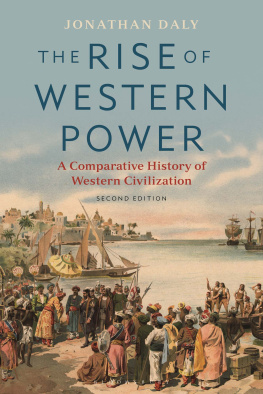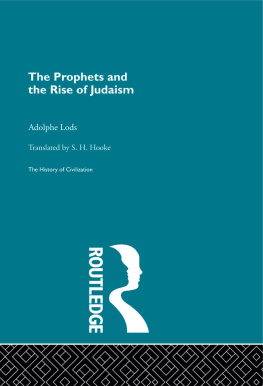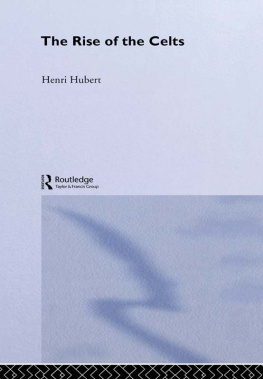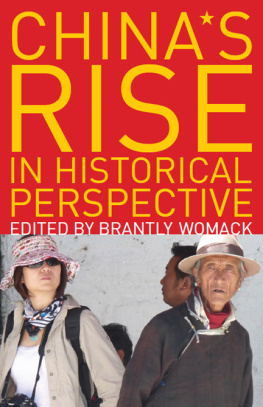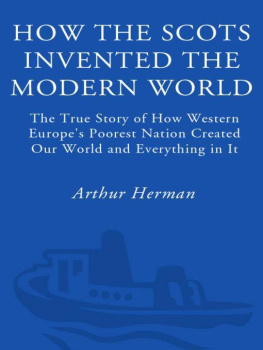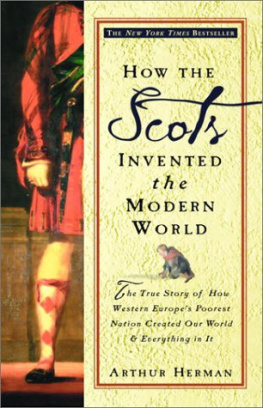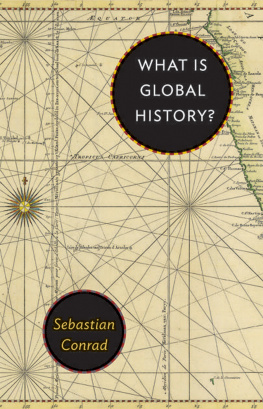Historians Debate the Rise of the West
How and why did Europe rise to world preeminence? Providing an overview of this central historical conundrum of modern times, Historians Debate the Rise of the West enables students to grasp major scholars evaluations of the biggest picture of all: how Western civilization fits into modern world history.
Most historians who write in this area subscribe to a combination of interpretations set forward by scholars of the field, like David Landes, Jared Diamond, or Kenneth Pomeranz. But it is often difficult to understand the position they are coming from, and for readers to understand clearly how Europe made the transition from merely one of many developing civilizations to the worlds first industrial power. In this volume, Jonathan Daly introduces us to the main interpretations of Europes rise that have been proposed over the past half-century and presents the views of these historians and schools of scholarship, advocating for each point of view and letting each author speak for him or herself through the inclusion of brief textual selections.
Also included are interesting biographical details for each scholar, as well as a list of further reading for each chapter and a collection of maps. An ideal introduction for students of world history.
Jonathan Daly is Professor of History at the University of Illinois at Chicago. His publications include Autocracy under Siege (1998), The Watchful State (2004), and The Rise of Western Power: A Comparative History of Western Civilization (2014).
Historians Debate the Rise of the West
Jonathan Daly
First published 2015
by Routledge
2 Park Square, Milton Park, Abingdon, Oxon OX14 4RN
and by Routledge
711 Third Avenue, New York, NY 10017
Routledge is an imprint of the Taylor & Francis Group, an informa business
2015 Jonathan Daly
The right of Jonathan Daly to be identified as author of this work has been asserted by him in accordance with sections 77 and 78 of the Copyright, Designs and Patents Act 1988.
All rights reserved. No part of this book may be reprinted or reproduced or utilized in any form or by any electronic, mechanical, or other means, now known or hereafter invented, including photocopying and recording, or in any information storage or retrieval system, without permission in writing from the publishers.
Trademark notice: Product or corporate names may be trademarks or registered trademarks, and are used only for identification and explanation without intent to infringe.
British Library Cataloguing in Publication Data
A catalogue record for this book is available from the British Library
Library of Congress Cataloging-in-Publication Data
Daly, Jonathan W.
Historians debate the rise of the West / Jonathan Daly.
Includes bibliographical references and index.
1. Civilization, WesternHistory. 2. Civilization, WesternHistoriography. 3. World historyHistoriography. 4. EuropeCivilization. 5. Europe Civilization-Historiography. 6. Civilization, WesternStudy and teaching.
I. Title.
CB245.D26 2014
909.09821dc23
2014021706
ISBN: 978-1-138-77480-3 (hbk)
ISBN: 978-1-138-77481-0 (pbk)
ISBN: 978-1-31577-353-7 (ebk)
Typeset in Sabon
by Taylor and Francis Books
For my Sofia
You are like the air I breathe.
Contents
I am grateful to my colleagues Joel Mokyr and Deirdre McCloskey for wise counsel, to Mark Liechty, Kirk Hoppe, and James Searing for valuable references, to Immanuel Wallerstein for insight into his scholarship, to my editor Eve Setch and her team for professional excellence, to the students in my The Rise of the West in Global Perspective (History 410) course at the University of Illinois at Chicago for years of enthusiastically discussing many of the texts presented here, and to my wife Sofia for inspiration in all things. I dedicate this book to her.
One thousand years ago, travelers to Baghdad or the Chinese capital Kaifeng would have discovered vast and flourishing cities of broad streets, spacious gardens, and sophisticated urban amenities. They would also have marveled at the extraordinary achievements of these civilizations in the arts, technology, science, and commercial life. The Chinese had invented paper, the mariners compass, woodblock printing, the blast furnace, paper currency, and gunpowder. Muslim scholars and thinkers had accomplished historys first great cultural synthesis, bringing together ideas and technologies from ancient Greece and Rome, from Persia and India, and from China and the ancient Near East. Europe, by contrast, was a backwater, and Paris, Rome, and London were cramped and unhygienic collections of villages. How, then, did Europe and the rest of what we call the West (North America, Australia, and New Zealand) rise to world preeminence over the next several centuries? This is the central historical conundrum of modern times.
My goal in writing this book has been to represent the views and arguments of a wide range of scholars seeking to explain the Wests ascendancy so faithfully that not even the most perceptive reader can discern my own views. Obviously, the interpretations that I summarize are in some cases so widely divergent that it would be impossible for any clear thinking individual to affirm them all simultaneously. The interpretations summarized in this volume cannot possibly all be right, though there is surely some truth in each one. The scholars who defend them are highly persuasive, however, so students will need all of their critical faculties in order to sort through their arguments. One should be on the lookout for logical fallacies, in particular the straw man argument, whereby a position one wishes to refute is caricaturized or otherwise exaggerated.
Before discussing contemporary authors, it is worth briefly introducing readers to several thinkers who first tried to explain the rise of the West. Scholars and thinkers in medieval Europe generally looked for signs of the unfolding of a divine plan without reference to the other continents and civilizations. Mystics like Joachim de Fiore (11321202), for example, speculated about the historical stages leading to the Second Coming of Christ. Many authors during the Renaissance viewed Europe (usually still their only frame
Geography and climate favored Europe (Montesquieu)
Among the first to try was Charles-Louis de Secondat, baron de La Brde et de Montesquieu (16891755), the highly influential political thinker who conceptualized the separation of powers theory. Drawing on ancient Greek thought and a vast reading of ancient and modern primary sources, he argued in his masterwork The Spirit of Laws (1748), that People are therefore more vigorous in cold climates, which imparts to them a greater boldness, that is, more courage; a greater sense of superiority, that is, less desire of revenge; a greater opinion of security, that is, more frankness, less suspicion, policy, and cunning. In hot regions, by contrast, one finds no curiosity, no enterprise, no generosity of sentiment; the inclinations are all passive; indolence constitutes the utmost happiness. In such climes, he argued, people bear servitude much more easily than people in northern regions. Women also enjoy greater freedom in temperate countries, because hot weather stirs the passions and the imagination, making it necessary for men to hide their wives and daughters from other men. Civilization of course first emerged in southern lands, but in the long run the greater vigor of northern peoples enabled them to triumph.


